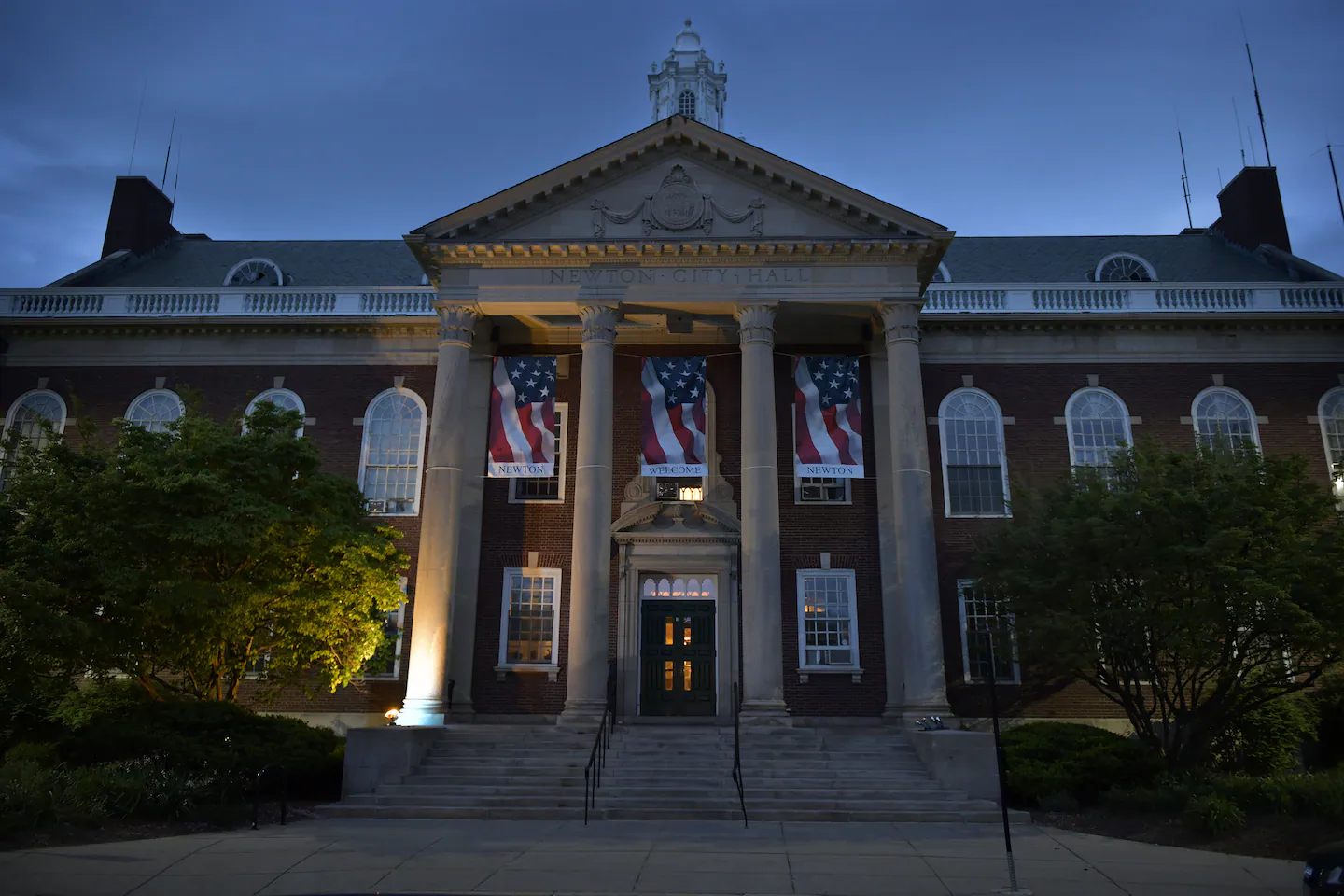Copyright The Boston Globe

“It would seem a statistically smarter decision to not have boys/men (regardless of orientation) in the private places where girls [sic] bodies are exposed,” Chaimanis wrote, according to a copy of the comments provided to the Globe. In the same comment, Chaimanis acknowledged transgender people are at high risk of being targeted for violence and wrote that “tolerance and acceptance of all people must be taught in our schools.” “It doesn’t mean that we should protect them by violating the privacy and safe spaces that women (and the people that love them) have fought hard to protect,” he wrote. The backlash over Chaimanis’s comments comes at a time when the federal government is threatening to cut funding to institutions that offer gender affirming care and has sent subpoenas to individual doctors and clinics that provide the care. As other states banned the practice entirely, including New Hampshire, many families think of Massachusetts as a “safe haven” for trans youth. But the ripple effects of the federal government’s threat to gender affirming care have reached Boston, too. Fenway Health, for example, will no longer offer hormones or puberty blockers to transgender patients under age 19 following a change to federal funding requirements. Since Chaimanis’s comments were unearthed, many in Newtown are concerned about electing a city councilor member whose views on transgender people are not aligned with many in the community. Reached Saturday by phone, Chaimanis said he didn’t have time to speak, but offered to respond to written questions. In an email, Chaimanis said he is not “anti-trans or anti-gay” and supports gender identity policies followed by Newton Public Schools. Newton Public Schools did not respond to a request for comment on Sunday. Massachusetts law prohibits discrimination based on gender identity and schools must respect a student’s assertion of that identity. Guidance adopted last October by the Newton School Committee stipulates that students may use restrooms, locker rooms, and changing facilities that correspond to their gender identity and that they will be provided with alternatives if they feel uncomfortable using shared spaces. Chaimanis described his 2024 social media remarks as an effort to become a “more informed parent” and learn how to support students as school officials debated policies about gender identity. “Since then, I have learned that some of the words I used were hurtful, including misgendering a trans-person,” Chaimanis wrote. “Causing hurt was never my intention, and I am sorry for any pain or harm I caused.” He made his social media remarks in response to a Sept. 26, 2024 story in the Newton Beacon about plans being considered by the Newton School Committee to broaden protections against gender discrimination. The city revisited the policies after the administration of former President Joe Biden expanded rules under Title IX, a federal law prohibiting gender-based discrimination in schools. In January, a federal court vacated the Biden-era revisions. As Chaimanis campaigned this fall for one of two at-large seats representing Ward 4 on the Newton City Council, the Newton Beacon published letters from two residents who criticized his 2024 remarks. The online news organization also published statements signed by elected officials in Newton that express support for the LGBTQ community. Joshua Herzig-Marx, a Newton resident who authored one of the letters to the Newton Beacon, said he is a friend to parents with transgender children. Some of those students don’t feel comfortable using the bathroom at school, he said. “The conversation should be about how do we make sure that all children feel safe in school and how do we ensure that school continues to be a place where kids can learn,” Herzig-Marx said Saturday. On Oct. 12, the Newton Beacon published a statement from Newton Mayor Ruthanne Fuller, 11 city councilors, and five School Committee members that criticized Chaimanis’s social media posts, but didn’t identify him by name. “Remarks that undermine the dignity or humanity of any group of residents, especially vulnerable youth, have no place in our civic discourse,” they wrote. They also extended their “unwavering support” to the LGBTQ community in Newton. On Wednesday, the Newton Beacon published another statement expressing support for LGBTQ community and signed by Fuller and 21 city councilors, including nine who also signed the earlier declaration. That statement didn’t reference Chiamanis or his social media posts. “We affirm that transgender students are not a threat to their fellow students, inside or outside of restrooms. On the contrary, they are often among the most vulnerable to bullying,” the statement said. Chiamanis said on Saturday that he agrees with that letter. Andrea Kelley, one of the elected officials who signed the letter, said, “It upset a lot of people to think that we could have a candidate or an elected official in Newton that had thoughts that were so contrary to the safe and welcoming environment we try to create and to existing Newton Public Schools policies.” For Kelley, who holds a City Council seat representing Ward 3, speaking out about this issue is about “upholding this commitment to the dignity, safety, and protection of trans youth.” Chiamanis is among three candidates running for two at-large council seats from Ward 4 in the election of Nov. 4. Councilor Josh Krintzman, who signed both statements, is running for reelection. Also running is Cyrus Dahmubed. Leonard J. Gentile, the other at-large city councilor from Ward 4, is not seeking reelection. On Saturday, Dahmubed said he had spoken to Chaimanis and believes he didn’t understand that his comments could potentially cause real harm and violence to transgender children. He also said he hasn’t seen Chiamanis speak out in support of the transgender community. “My priorities are around supporting families of trans people in this community,” Dahmubed said. Krintzman said he knows “what a lifesaver gender-affirming care can be.” “I think we ought to be elevating the voices of those who support our marginalized communities, not those who stoke unsubstantiated fears,” he said.



